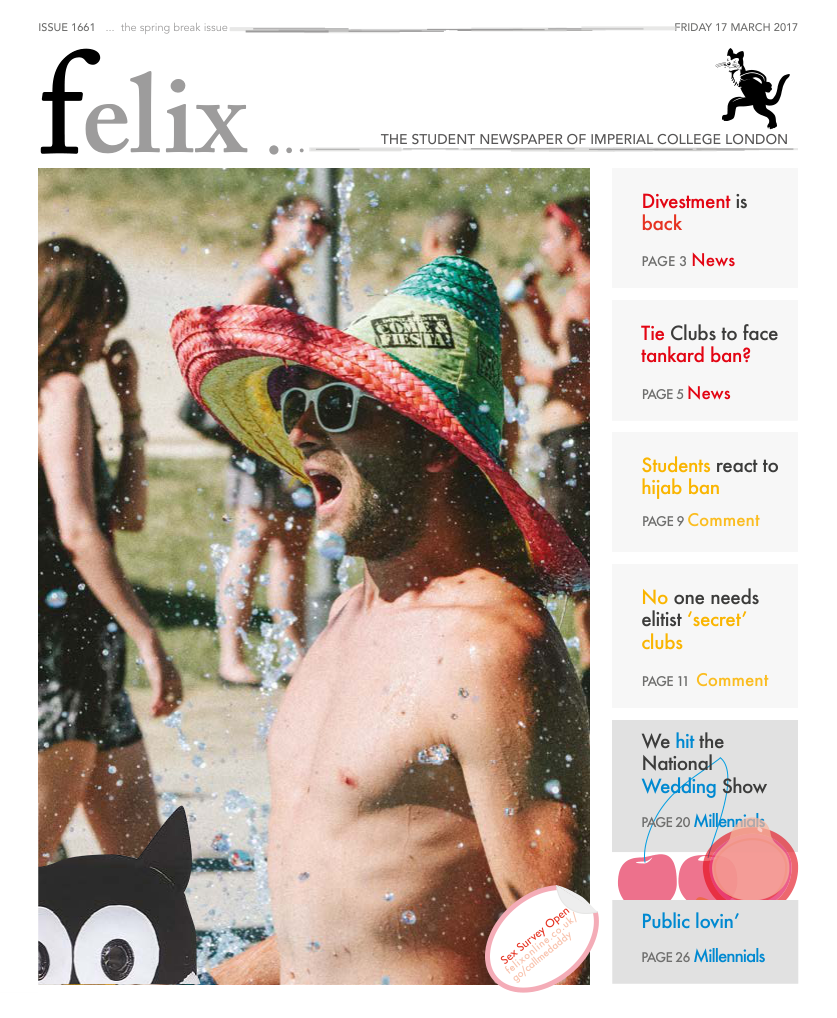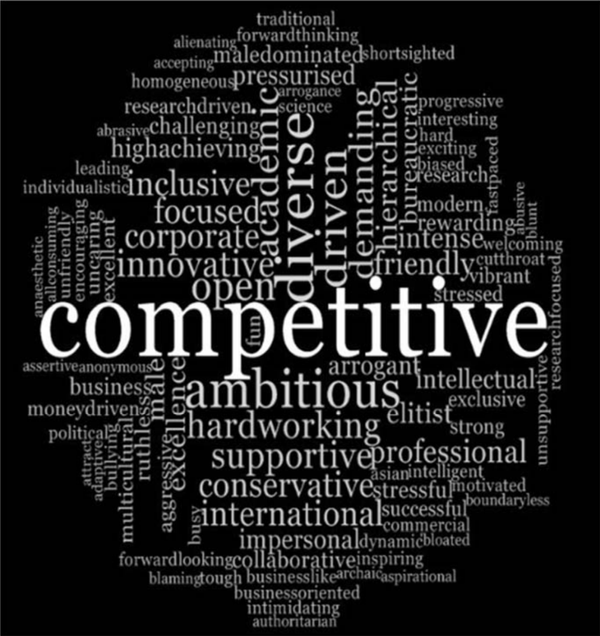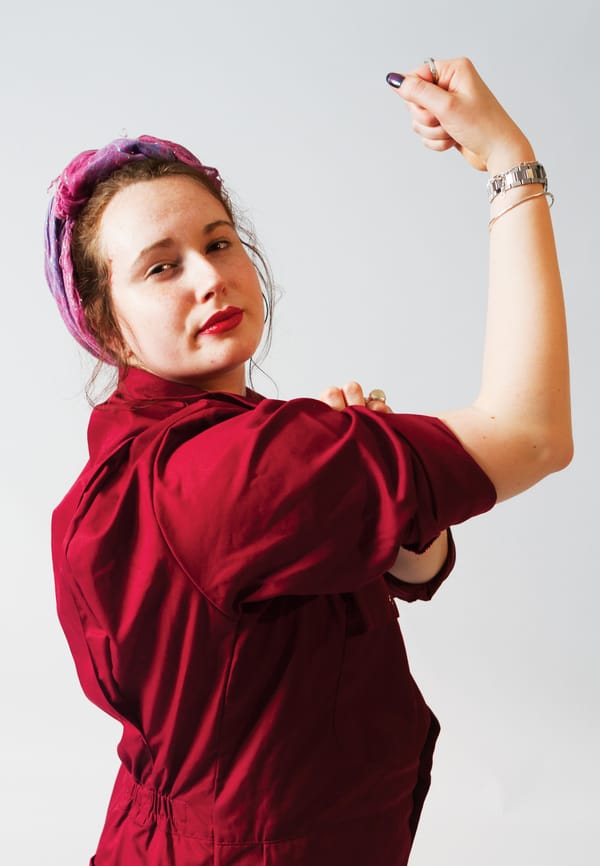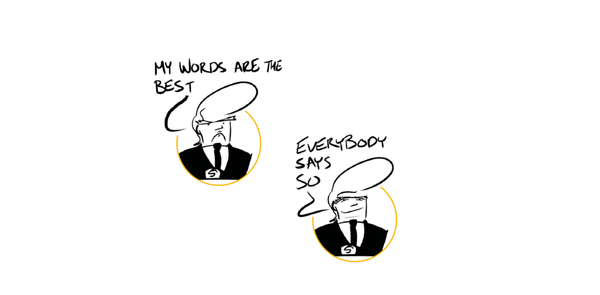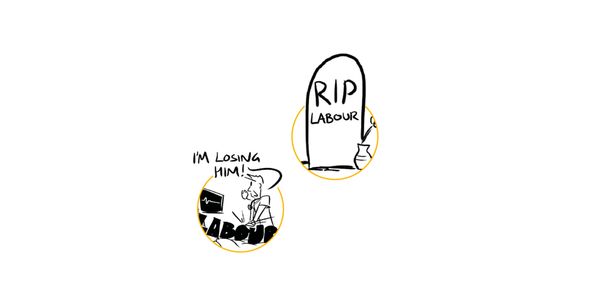There's no place at Imperial for elitist 'secret' clubs
Andrew Olson thinks it's time the exclusive drinking societies were held to the same standard as everyone else

Everyone studying at Imperial is aware that this place is not perfect. Yes, there are problems with student engagement, mental health, even sexism. But despite these issues, I feel it is the place which has mainly contributed at making me who I am today; the fantastic wardening team in my halls in first year, the challenging environment and, more importantly, the Imperial community of incredibly interesting people from all over the world which I could always learn something from.
Because of this mental image that I had of Imperial and the Union, I was rather surprised when I learnt about the Tie Clubs. It all started last year, when I was asked as CGCU President to obtain some information about our Tie Club, The Links. I emailed a few alumni regarding this, and got very vague responses. This led to snarky remarks in subsequent alumni meetings, as well as a sense that I was not welcome any more. It was very obvious I had asked the wrong questions.
But you might be asking yourself: what exactly is a Tie Club? I’ll summarise it for you: there are three Tie Clubs: The 22s, The Chaps and The Links, dominated by rugby players from the different Constituent Unions. Invite-only, The 22s don’t admit women, and The Links have been accused of tokenism as even though they do admit women they only have one female member that I know of. They meet in the Union bar to drink, and are known as probably the best example of 'lad culture' (They literally started as boys-only clubs) at Imperial. Another club, The 15s, was founded last year as a female version of the 22s, but there is not much information about their activities as they don’t seem to be as active as the older Tie Clubs.
How can we reconcile the image of Imperial College as an open, international university where you are judged not on the colour or your skin or your gender, but on your performance and ability, with secret invite-only societies where (mostly) privately educated white men meet to drink? We can’t forget that these societies act as very effective alumni groups, giving easier access to jobs to their members, already benefiting a privileged class. If you disagree then you don't understand the concept of networking.
I am not against freedom of association. I believe that if a group of men want to meet and help each other out in their own time, they can do that even if I don’t agree with it. What is worrying, though, is when these organisations have deep connections with powerful entities including Imperial College Union, which could allow them to bend rules . In this context it is important to remember that 40% of the sabbatical team in the Union this year are members of Tie Clubs, and the next DPFS, Matthew Blackett, can be seen in the picture from the Results Party sporting his 22s tie. This representation in the hierarchy of the Union has traditionally allowed them to dominate the conversation and deflect criticism, as can be seen by the utter lack of response after this issue was raised last year at Union Council.
The current status quo legitimises these organisations and in turn this means the Union is condoning their activities. If any other club were known for being rude to bar staff, being loud, and receiving constant allegations of sexism, they would be investigated by the Union. Even worse, if an external organisation had the same reputation and history of discrimination they would not be allowed to use Union resources. The exception always seems to be the Tie Clubs.
With all this information, it is important to ask ourselves, why are they even there? Why does the Union make mention of them in their policies as an exception? Why are they not held to the same standards as any club, society, project or external organisation? The wider student body don’t know about them, the bar staff hate working when they are around, and the people who do know about them think they are outdated.
Tie Clubs might have been an accurate representation of Imperial College in the 70s (remember, women weren’t allowed in the Union bar until 1975), but they are definitely not a representation of the Imperial that I know. Yes, if you don’t know about them they probably don’t affect you. But in this day and age of fake news, increasing nationalism, an uptick in xenophobia and the general apathy of our generation, it’s important to stand for what is right. This is a matter of principle: ensuring that the body that is meant to represent all of us, the Union, actually does so, instead of representing the interests of a few.

